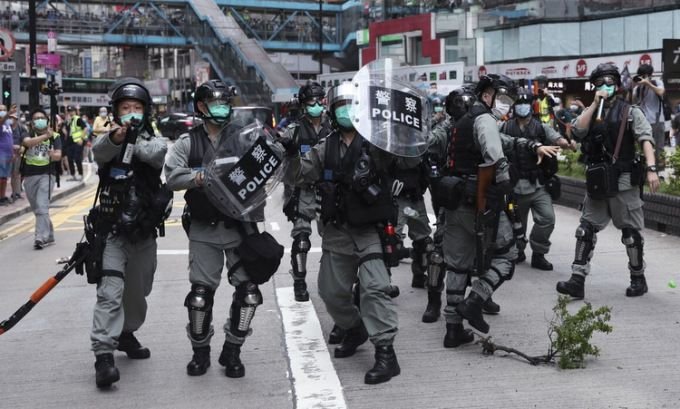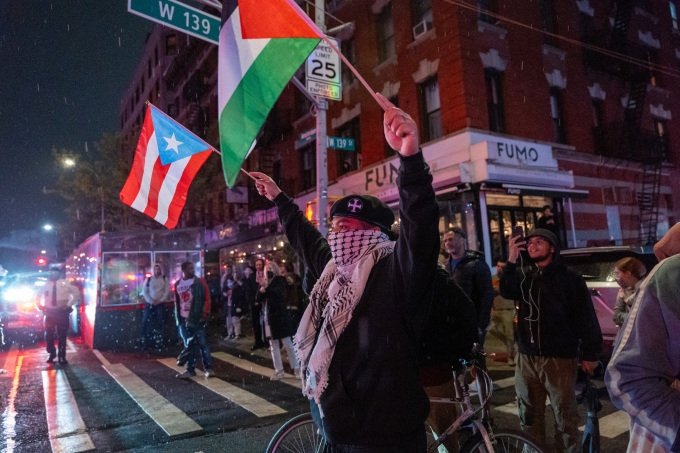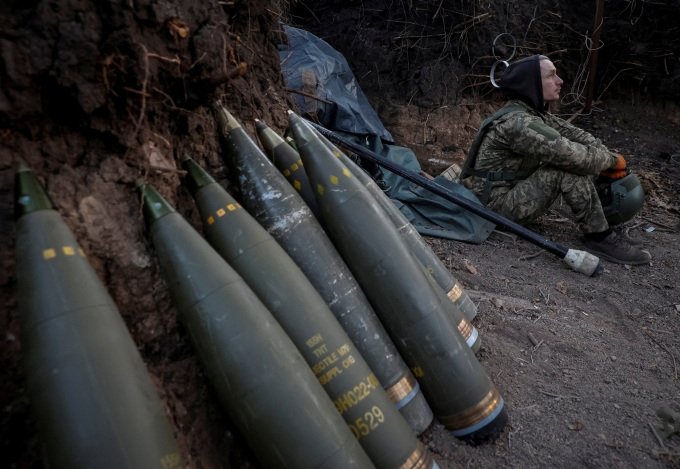
How China can enforce Hong Kong security law
The National People’s Congress (NPC), the Chinese parliament, on May 28 voted to pass `Resolution on Establishing and Improving the Legal System and Enforcement Mechanism for the Hong Kong Special Administrative Region
The security law could be enacted by the NPC Standing Committee in the coming weeks without going through the Hong Kong Legislative Council.
The law could also allow Chinese security and intelligence agencies to set up facilities in the city when necessary.
Hong Kong police responded to protests against the security bill at the end of May. Photo: SCMP.
Many pro-mainland officials and former officials in Hong Kong believe that to enforce security laws in the special zone, Beijing can deploy security and intelligence facilities and forces with functions similar to the Secret Police Department,
The Secret Service is a secret security unit established by Britain in the colonies, specializing in monitoring individuals, organizations and activities considered to be potential threats to the security and interests of the motherland.
Former head of the Hong Kong special zone, Leung Chan Anh, currently vice chairman of the National Committee of the Chinese People’s Political Consultative Conference, was the first person to mention reviving this model in the special zone.
`Singapore has a Department of Homeland Security (formerly the Secret Service), we do not. The US also has many law enforcement agencies specializing in dealing with national security threats, we do not. Not surprising.
Several former special zone officials also made similar comments, including Lau Siu-kai, a former senior Hong Kong official advising Beijing, and Elsie Leung Oi-sie, a former head of Hong Kong’s judiciary
The Secret Service in Hong Kong originated in the 1920s, when the British colonial government established a special unit within the Criminal Intelligence Bureau (CIB) of the Hong Kong Police Force.
The unit was renamed the Secret Service in 1933, with its main function still being `preventive political surveillance` to suppress anti-colonial activities, according to research by professors Fu Hualing and Richard
The main component of the Secret Service is British officers, whose task is to collect intelligence and disrupt protests and strikes organized by the Communist Party.
The 1976 annual report of the Hong Kong police lists some of the duties of the Secret Service as `to detect and prevent acts of riot and sabotage, as well as to collect, collate, evaluate and disseminate
This agency is also involved in passport control and immigration.
`The head of the Secret Police Department has great power. This position is usually held by a deputy chief of the Hong Kong police department, who will report directly to the police chief and the governor-general of Hong Kong. The Secret Police Department
Ray Yep Kin-man, a political expert at HKU, said the head of the Secret Service is also a member of the city’s high-ranking intelligence committee, which includes the commander of the British garrison and the head of the city.

Left-wing protests in Hong Kong in 1967. Photo: SCMP.
The Secret Detective Department operated until 1995 and was restructured by the Hong Kong colonial government and merged into a security force with very limited functions, mainly focusing on anti-terrorism.
The decision to disband this department was made because the colonial government feared that much sensitive information would fall into the hands of Beijing after Hong Kong was returned.
Many Hong Kong lawmakers believe that it will be very difficult to monitor intelligence forces sent by the mainland if the security law is passed, especially when they can operate secretly like the Secret Service during colonial times.
Vice Chairman of the Hong Kong Basic Law Committee Maria Tam Wai-chu said that this force could participate in `coordinated efforts` with the special zone police.
However, many Hong Kong scholars are still skeptical about the transparency and accountability of China’s intelligence forces.


